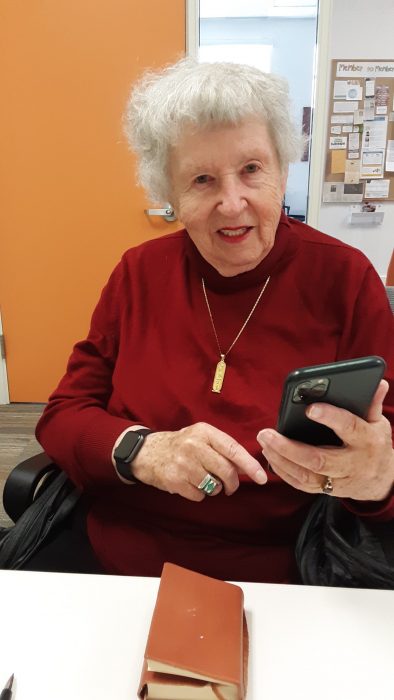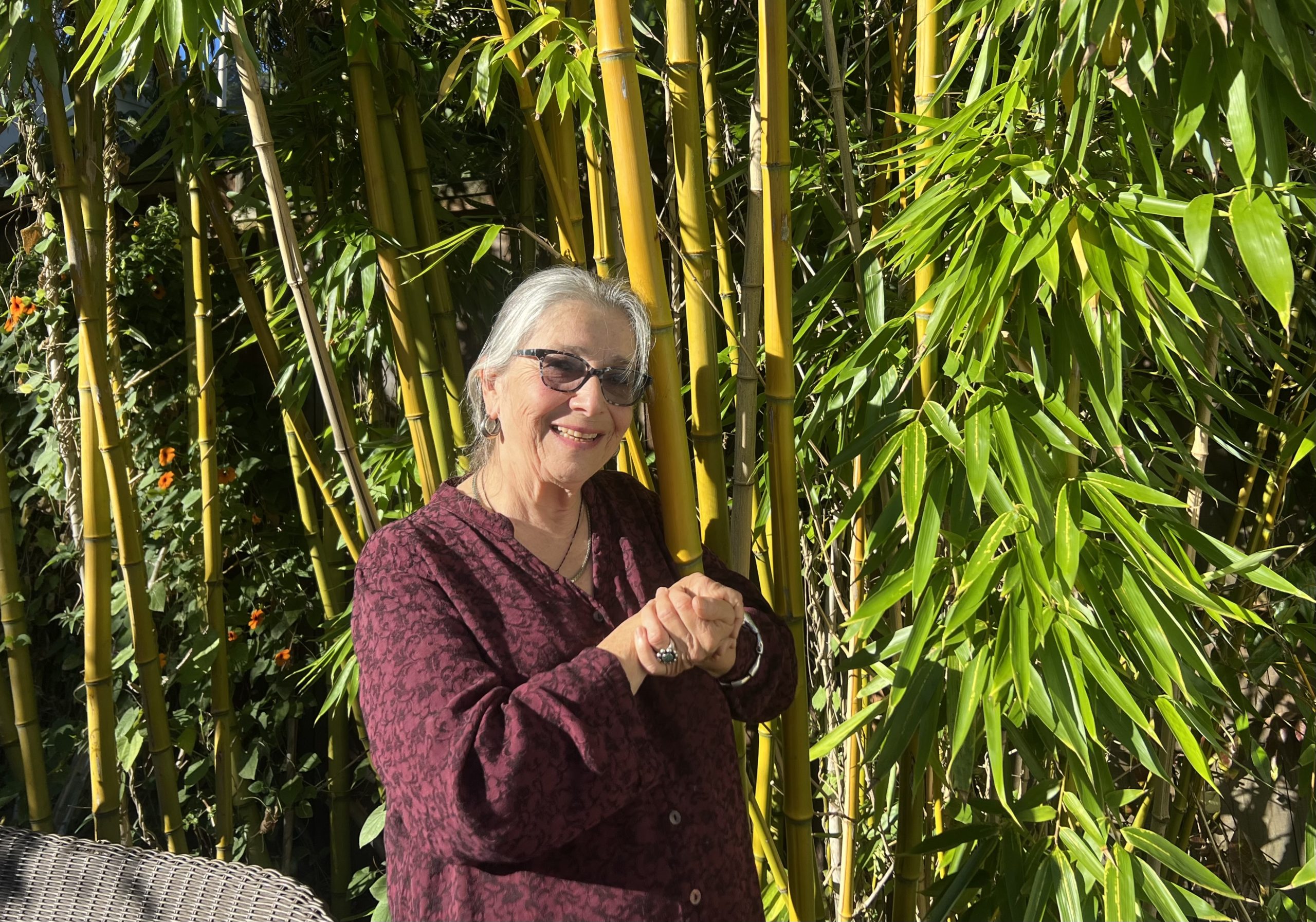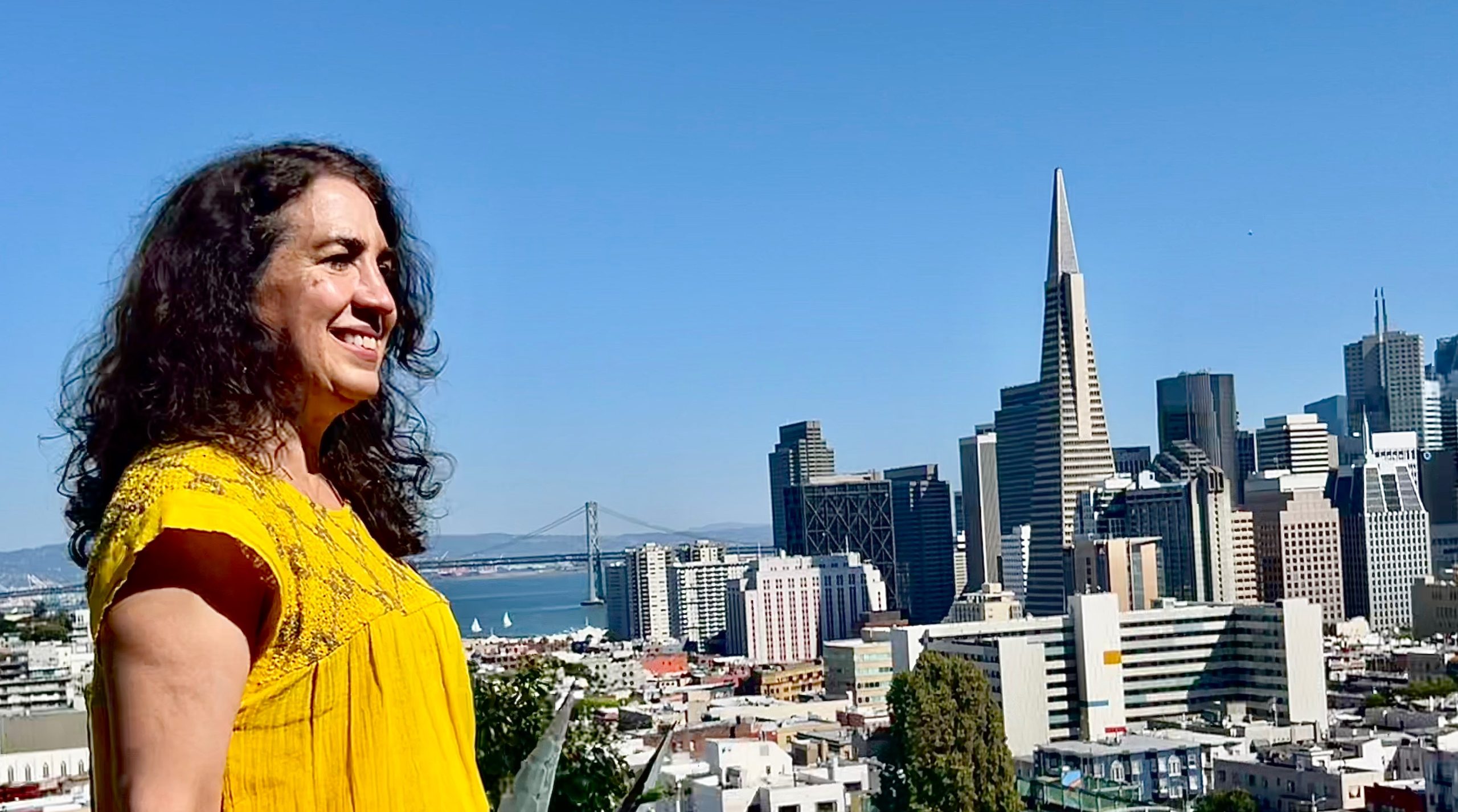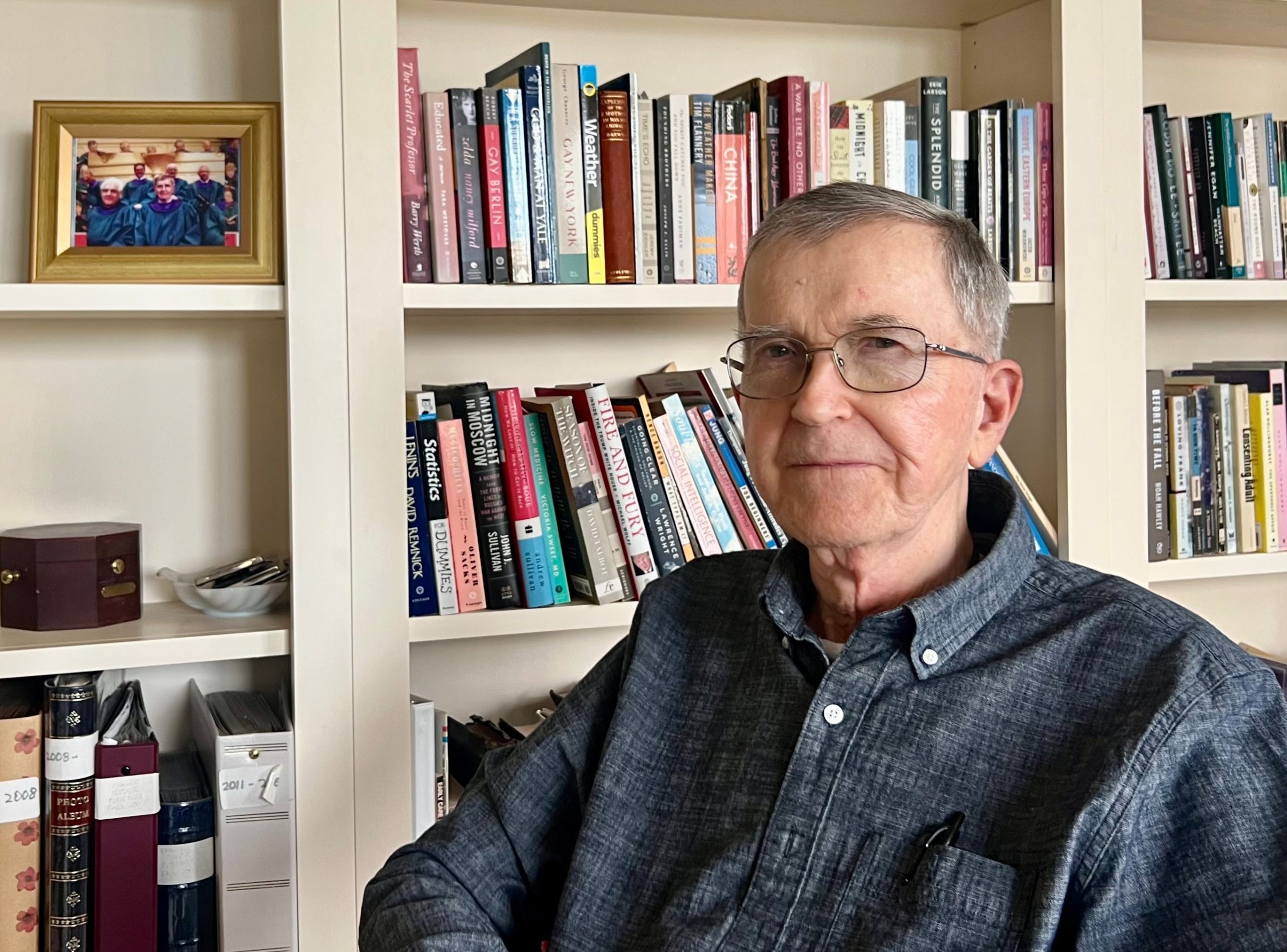Orchids a beacon of light for medical researcher/ clinical pharmacologist who switched to patient care during dark days of AIDS
Joanne Whitney sits in a large conference room, eyes focused on an interviewer, arms slightly raised, palms up and in a pronounced Bronx accent says, “What can I tell you; I’m eclectic.”
She points to a long list of diverse roles in pharmacy, medical education and public service over a career spanning five decades. When she’s not working, she cultivates orchids, lectures on their medicinal use and leads tours of San Francisco’s Botanical Garden.

Now 84, Whitney said she follows a particular ethos: “Give back as much as possible.”
That is exactly what she did in 1981, when the AIDS crisis hit San Francisco. Having recently earned a doctorate in pharmacy, she felt it was a time to come face to face with the folks who were suffering. She had lost so many friends and colleagues.
A light went out
“There was a young man who worked in my lab. When he got AIDS, he wanted so much to see Phantom (of the Opera) that his partner and friends took him to New York. But this beautiful man was too sick to go to the theater,” she said. “He was like my son and a light went out in me when he died.”
After 10 years in clinical pharmacy and medicine at the University of California-San Francisco, she left to work as a home infusion provider, serving AIDS and other patients.
“This was the hardest job I ever had, being called out at all hours of the night, administering medications to AIDS and other patients, and supervising a large staff. But it was also the most wonderful time, meeting and serving some of the kindest people.”
But she sometimes encountered people being not so nice. One night, she was called around 11 p.m. to adjust a pump for a patient who was dying slowly. “His partner opened the door, had a suitcase in hand and ran out.
“I couldn’t get a nursing service to come until morning, so I stayed all night, holding this patient’s hand,” she remembered. “This was (and still is) a sad and unforgettable time for me and so many others.”
Still working
As a research professor in medicine, Whitney’s first 15 years were devoted to studying vitamin D synthesis in children with vitamin D-resistant rickets, issues surrounding the treatment of breast cancer, and other areas. Along the way, she traveled to Europe to give papers and courses.
Later, she switched to teaching clinical pharmacy and directed the UCSF Drug Product Services Laboratory, which made ointments, inhalers and other devices. She also led a pharmaceutical team and taught nutrition, biopharmaceutics and pharmaceutical calculations. On occasion, she served as an expert witness in court cases involving medication errors.
She retired from her full-time professorship in 2007 but remains a part-time member of the Department of Clinical Pharmacy faculty.
“There is a great human and monetary cost to educate a pharmacist,” she said. “So having been privileged to have graduated from UCSF at the age of 52, I intend to practice my profession as long as I can.”
Her work for the university also includes overseeing pharmacology students visiting senior centers and testing older adults for diabetes, high cholesterol and osteoporosis. She has been honored for this work multiple times by by the community outreach program within the department.
Beauty for a lifetime
She spends much of her other time devoted to plant life. She has collected, cultivated, and maintained 2,000 orchids in two greenhouses. “A long time ago, I brought one orchid and found amazing beauty which has lasted a lifetime,” Whitney said.
Orchids are still a passion, but ill health has forced her to scale back her horticultural activities. “I could not fully continue this love affair. Plants were given away; the precious ones were kept.”
A friend uses her greenhouses for his own orchids. And she still grows cold-tolerant orchids outside in the tunnel entrance of her Miraloma Park home.
Whitney is recognized by the American Orchid Society as an official judge. She has traveled as far as Brazil to bestow awards and speaks to audiences throughout the Bay Area on the medicinal uses of orchids. Her next talk is scheduled in March at the Filoli Historic House and Garden in Woodside.
Whitney is also on the board of directors of Golden Gate Park’s Botanical Garden and twice a month leads 90-minute tours of the garden.
Whitney was born in 1937 in the Bronx, N.Y. Her father, a plumbing contractor, died when she was 15, leaving her mother, a nurse’s aide, to support the family.
She enrolled in Duke University in Durham, N.C., she said, “because I was enamored with the South and the writings of Thomas Wolfe.” Science, she noted, is a liberal art, and she is an enthusiast of speech, drama, history, plays and opera.
Creating new family
In her 30s, while in New York, she married Howard Whitney. In retrospect, she thinks she was really in love with his boat – a 42-foot schooner. While married, she met a woman named Joanne, who became a lifelong friend. They left their husbands and, along with Joanne’s 8-year-old son, headed for San Francisco “because it had the best opera companies,” Whitney said.
Joanne, who has Alzheimer’s disease, has been in a memory care unit for three years. Her son and daughter-in-law and their 10-year-old autistic son are her family now.
When she’s not volunteering, Whitney tries to carve out a bit of time for herself. She is writing a memoir and doing a lot of walking with friends. And she may be about to rekindle her love affair with orchids. She said she is now on “reset” to start cultivating a few new variations.






Nancy McNally
This portrait compelled me to thank Senior Beat for highlighting soulful creative kind people. Encore ! I am the 4th gen SF-er overwhelmed by the changes not for the better in my home town.